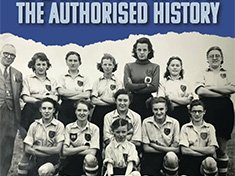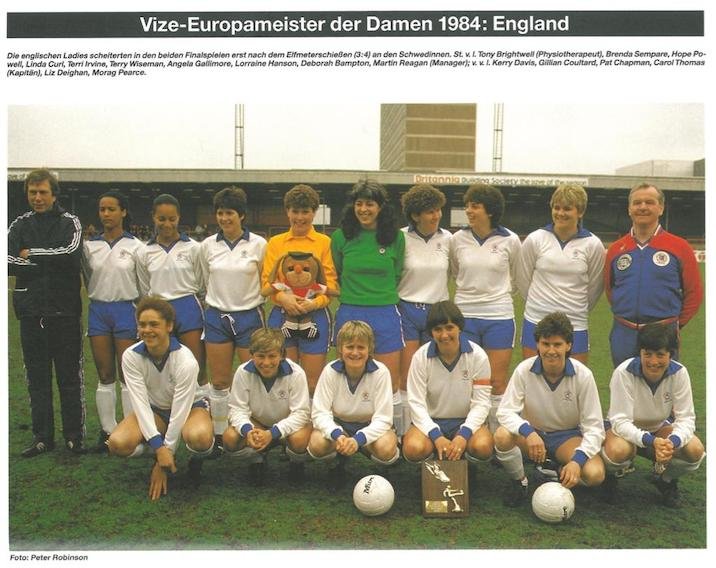
In a very apt #ThrowbackThursday, Professor Jean Williams explains to us about…
‘The Power of Reunions in Women’s Football’
A confession, I have never been to a school reunion. Or any kind of reunion for that matter. It is the sort of thing that brings me out in an anxiety rash. But, having been selected as the academic lead to The National Football Museum on women’s football back in 2018, there had already been a project plan set in place, and this included a reunion event. I had already helped Dr Kevin Moore, then Museum CEO, to make a case to purchase the 7,000 item Chris Ungar collection of women’s football memorabilia, probably the biggest in the world. I then worked with the museum’s curator dedicated to women’s football, Belinda Scarlett, to interpret the collection. So, to add to these activities the National Football Museum held a reunion of women football players, over 2 days on 30 September and 1 October 2018 to mark National Sporting Heritage day. It was a complete revelation and a big success.
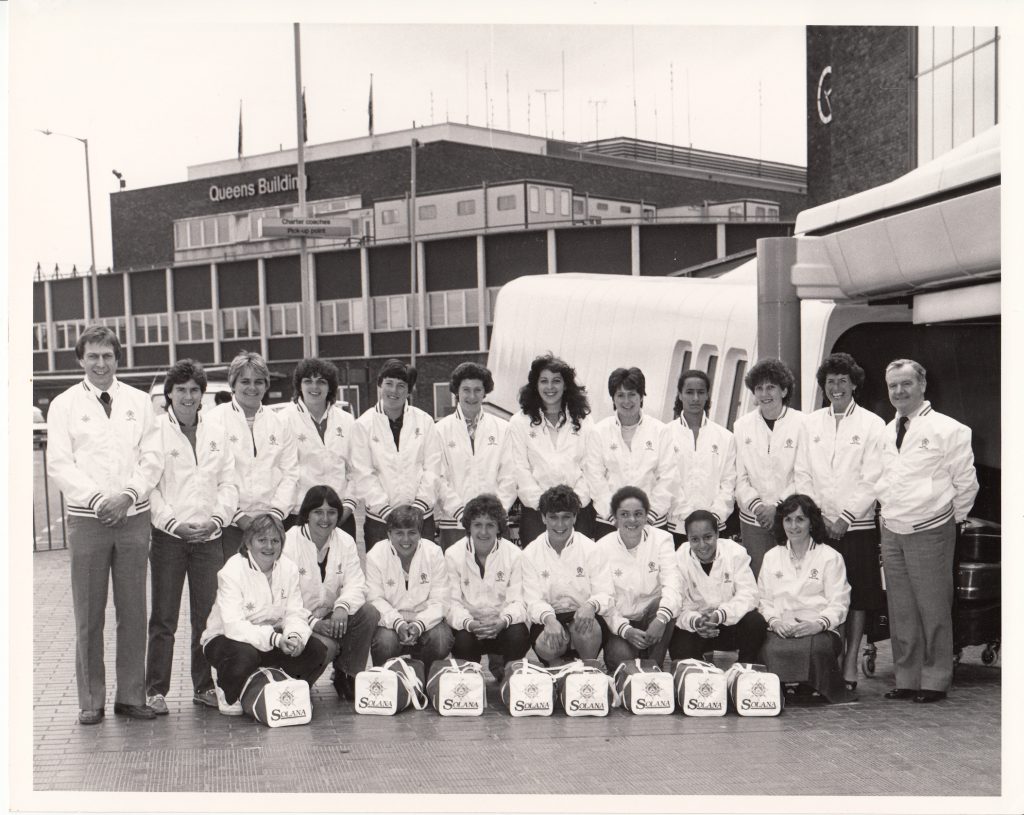
We especially wanted to meet players active before 1993 when The FA formally took control of women’s football. One of the key teams to be reunited was Harry Batt’s England team who represented their country, albeit unofficially, at the Women’s World Cup in Mexico in 1971. There were also important England players who attended, including Captain Gill Coultard, who has 119 caps, and Kerry Davies who scored 44 goals in 82 England games.
Our work with the Lionesses can be read here https://www.jjheritage.com/stories-from-the-70s.html Other England internationals included Elaine Badcock, Liz Deighan, and WFA officials Linda Whitehead and Pat Gregory. Many of the Manchester Corinthians FC team also attended, whose eldest member at the reunion, Alice Elliott, was 84 years of age and had been part of the founding of the club in 1949.

The Manchester Corinthians team 1949
The Corinthian Ladies were founded in 1949 by Percy Ashley, with the intention to provide his daughter, Doris, with the opportunity to play football. You can read more about them here https://www.jjheritage.com/manchester-corinthians.html
The name was chosen to reflect the amateur Corinthian values that had preceded professionalism. Accordingly, the team was made up of career women, from typists to machinists and civil servants.
Gladys Aiken took charge of the team in the late 1960s, when her daughter Carol played for the team, and kept a series of scrapbooks to trace the journey of the Corinthians: https://unlockingthehiddenhistory.wordpress.com/2017/08/14/scrapbooking-an-insight-into-manchesters-corinthian-ladies/
This gives an insight into women managing their own teams, well before it was conventional for women to work in the football industry. Referee Pat Dunn was also a pioneer who was involved in demanding certification for women officials who, until that point had not been allowed to qualify. Pat would later travel to the unofficial World Cup with Harry Batt’s team as a chaperone and trainer.
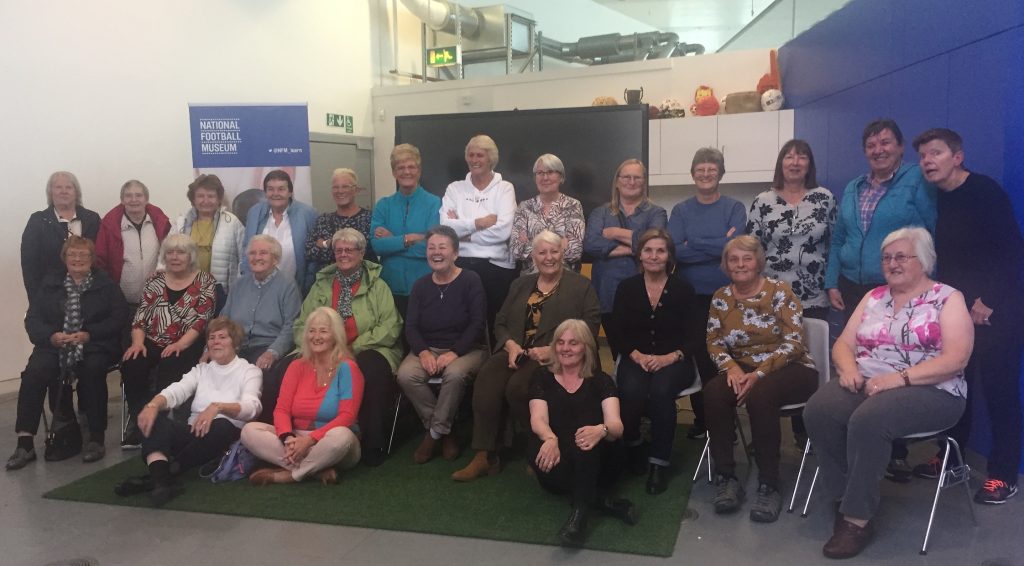
The Corinthians players at the reunion were aged between 13 and 40 years of age when they played, and often played against their second team, the Nomads. The team trained at Fog Lane Park in Didsbury every Sunday, whatever the weather. There are snapshots of them trailing buckets of water to the changing rooms nearby as there was no running hot water. After tours of South America, Europe and North Africa, the team eventually raised over £275,000 for charity, mostly the Red Cross and Oxfam: https://unlockingthehiddenhistory.wordpress.com/2017/10/10/kath-davies-memories-of-a-corinthian-lady/.
The players also confirmed the stories of Bert Trautmann acting as official interpreter for the Manchester Corinthians team who, representing England, won a tournament held in Germany in 1957 and provided their snapshots of him. Some players donated shirts, memorabilia and so on to the museum to build their contemporary collections.
The Organisation of the Unofficial Women’s World Cups of 1970 and 1971
Held outside the auspices of FIFA only one year after Mexico hosted the men’s world cup, this was a key moment in the history of women’s football because it proved a large commercial market for women-only tournaments. This built upon a successful Women’s World Championship in Italy in 1970. Some of the players who went to Italy, couldn’t go to Mexico as they couldn’t get the time off work. The opening games were played in front of crowds of 80,000 people. England played in group 1 against the hosts Mexico and Argentina. Group 2 comprised France, Italy, and Denmark. The mascot was Xochitel, the flower.
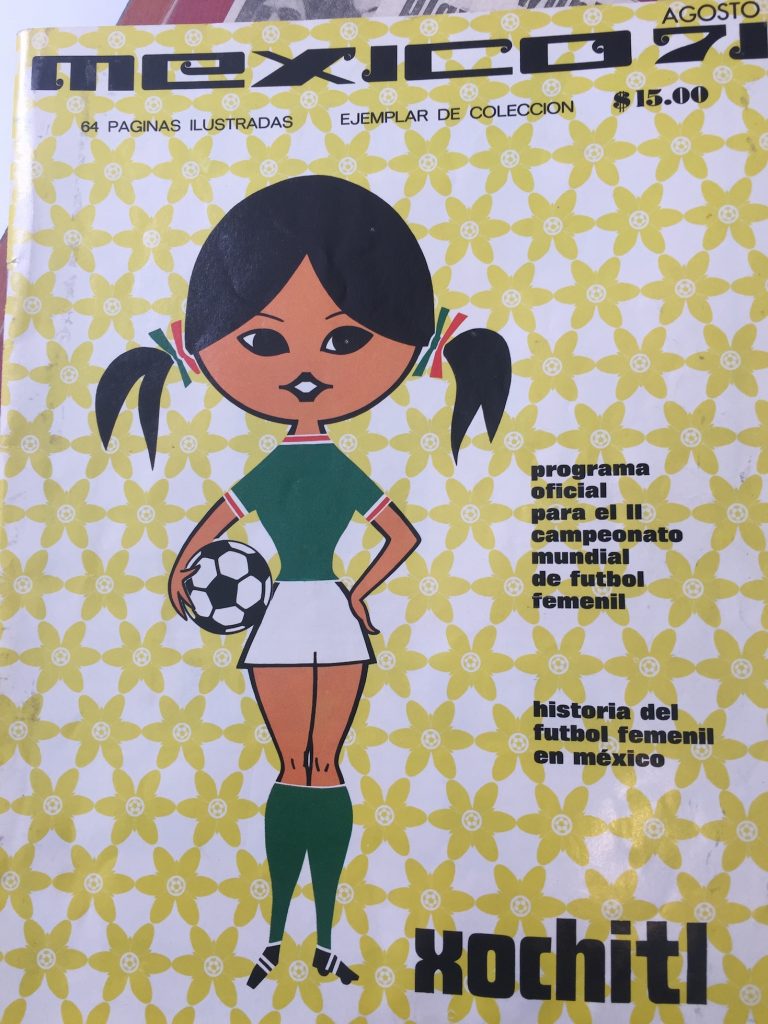
The England ’71 team
When the team departed for Mexico on Thursday 5th August 1971, there was no direct flight so they went via London – New York – Mexico City. The team did not return until Tuesday 7th September 1971 from Mexico City via Paris to London. Since most of the players had not been on a plane before, this must have been a very exciting time! Though they were not so successful on the pitch. Television cameras, media coverage and large crowds. The stories are just emerging and more research is to follow.

Above is a photograph courtesy of Leah Caleb taken in the Aztec Stadium a few days before the start of the tournament, showing some sun damage with age.
Individuals from Left to Right:
Back row: Keith Batt (Mascot), June Batt (Assistant Manager), Players – Marlene Collins, Lilian Harris (GK) Evonne Farr, Jean Breckon, Carol Wilson (Capt), Christine Lockwood,
Jill Stockley, Pat Dunn (Trainer & Chaperone), Harry Batt (Manager)
Front Row: Players – Valerie Cheshire, Louise Cross, Gillian Sayell, Paula Rayner, Janice Barton, Trudy McCaffery, Leah Caleb
So the reunions were really powerful. We have since managed to reunite players who played together in Australia and Italy and haven’t seen one another in 50 years. Because of the historic marginalization of women in written documentation and museums, social strategies, such as reunions, and social media connectivity can help to develop a sense of wider community. We concluded the two days of reunion with a civic reception at the Lord Mayor’s suite in Manchester. Here we toasted the success of the players, their fortitude and their friendship. We were also treated to a song often used by the Manchester Corinthians.
Since 2018 we have held more reunions in 2019 and 2020, including at the National Football Museum, and for the England internationals at Wembley stadium, on 9 November 2019. Since lockdown we have been continuing with zoom reunions and there are four sessions recorded at The Football Collective Website: https://footballcollective.org.uk/2019/12/22/away-from-the-numbers/
1. Celebrating 50 Years of Manchester Corinthians versus Dundalk:
2. Looking Back on England nearly winning the first Euros in 1984 with Carol Thomas, Gill Coultard and Pia Sundhage, now Brazil national coach:
3. Celebrating 50 Years Since The First Women’s World Cup in Italy 1970 sponsored by Martini and Rosso:
and 4. England v Germany rivalry in the 1980s Women’s Football Panel with Gill Coultard and Kerry Davis, and Petra Landers of Germany:
Jean adds this message: Please, if you have any more details of women players from the 1940s-1990s, DO GET IN TOUCH: [email protected]



